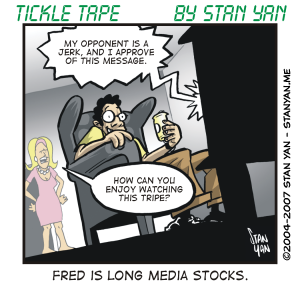Do you remember your first impressions of trading? Perhaps you were young and had a strong desire to achieve early success, but if you were like most people, you had unrealistic expectations about the financial resources and skill level that were needed to trade profitably. You probably figured that you could just open a typical online brokerage account and turn $1,500 into a fortune. You probably didn’t hold this misconception very long, though. Soon, you learned that you needed a lot more capital than $1,500 to make profits as a trader, and you probably found a brokerage that allowed you to make trades in real-time.
As you gained knowledge and experience with the markets, you started learning how your original ideas were naïve. Sure, in hindsight, it seemed obvious that your ideas about trading were off base, but at the time, your perceptions seemed quite valid. Everything seems obvious in hindsight, but at the time, you don’t see it that way. In the midst of it all, everything makes perfect sense.
The human mind is capable of extreme optimism. We have a strong desire for success, and it can be so strong that we see things that just aren’t there. Our thinking can be biased and self-serving. We can convince ourselves that making money in the markets is easier than it really is. We can believe that good quality setups are easy to spot, and we can convince ourselves that we will have rock-solid confidence and unwavering discipline when the time comes. But our expectations don’t always match reality.
Acknowledging the ability of the mind to create a fantasy world that builds up our ego is crucial. When we want to win so badly, we start to distort reality. We can’t see things clearly. In hindsight, though, we look back and think, “How could I have been so stupid?” It’s useful to cultivate a healthy sense of skepticism. Skepticism isn’t the same thing as pessimism. A pessimist falsely distorts reality to the point that he or she believes that even a reasonable plan is doomed. A skeptic is optimistic yet is also realistic. No trading plan is foolproof. The markets don’t always cooperate with you.
The winning trader is the person who questions a trading plan before executing it. He or she tries to anticipate what could go wrong and thinks of ways to work around these potential setbacks. Being a healthy skeptic can be difficult at times. Again, most humans are naturally unrealistic. They want to believe in miracles. They tend to wrongly believe that if they can imagine it, then it will happen. But it isn’t that easy.
It is necessary to plan ahead. Consider what can go wrong and make a plan for what you are going to do to come out unscathed should a trading plan fail. It’s useful to remember the basics: Manage risk and follow a detailed trading plan. If you manage risk, you’ll ease some of the psychological pressure you feel. Psychological pressure can produce denial, and when your vision is clouded with denial, you’ll be prone to feel overconfident, and take risks that don’t make sense in the long run.
When you risk little on a trade or minimize risks through protective stops, then you will feel free and relaxed. You’ll be open to new experiences and you will be likely to see problems with your trading plan before it is too late. You can make some quick revisions that will prevent you from making big losses. Similarly, if you think through trade, you’ll increase the odds of anticipating adverse events. As you mull things over, you’ll see how you may have given in to self-serving biases and distorted reality.
Don’t live your life fighting off feelings of regret. Things always look better in hindsight. But if you plan ahead, skeptically anticipate what may go wrong, and take precautions, you will increase your chances of winning.


